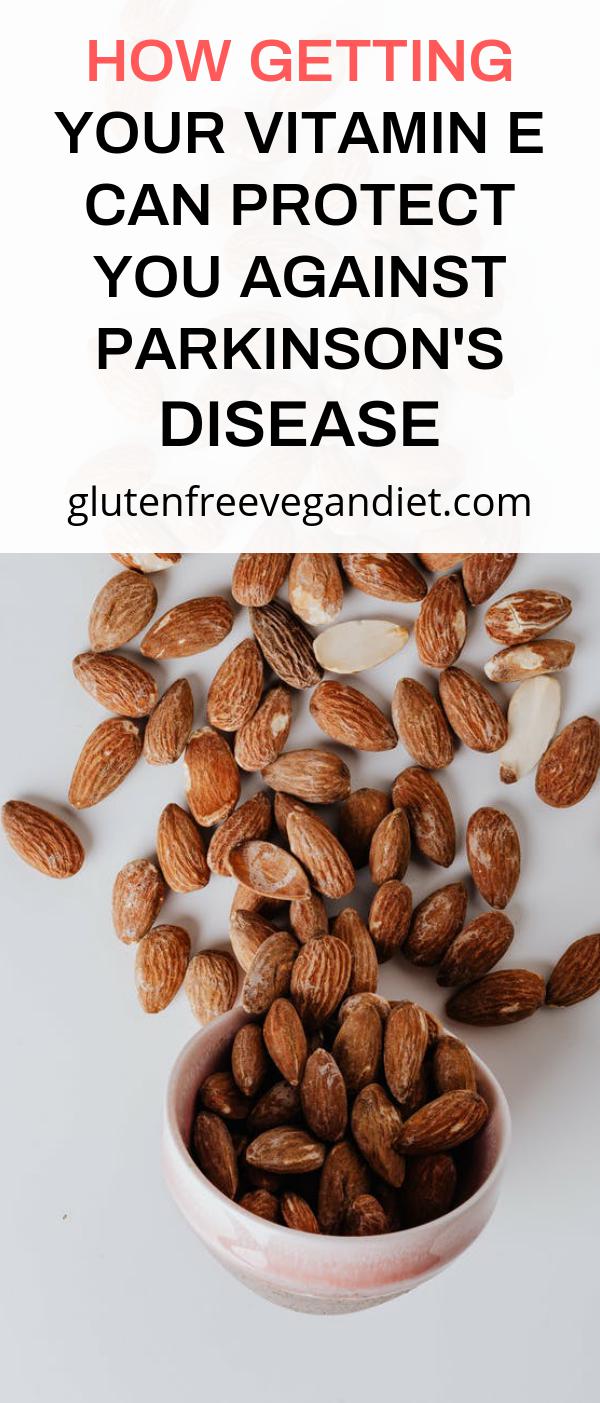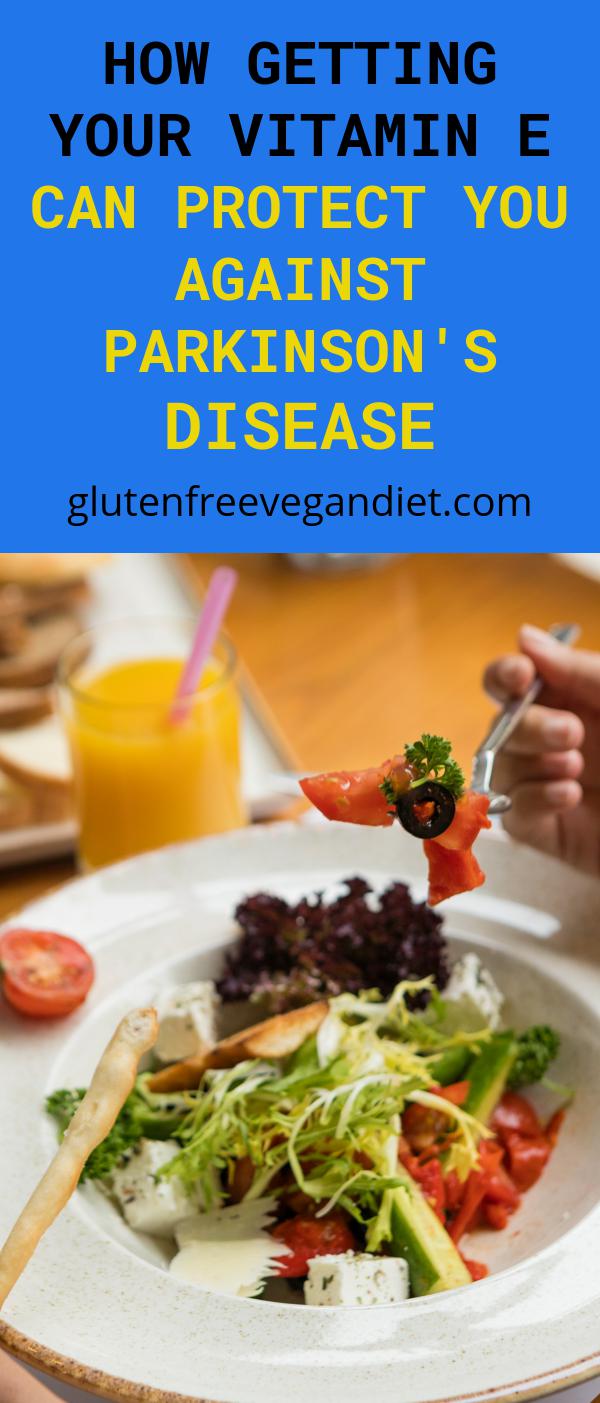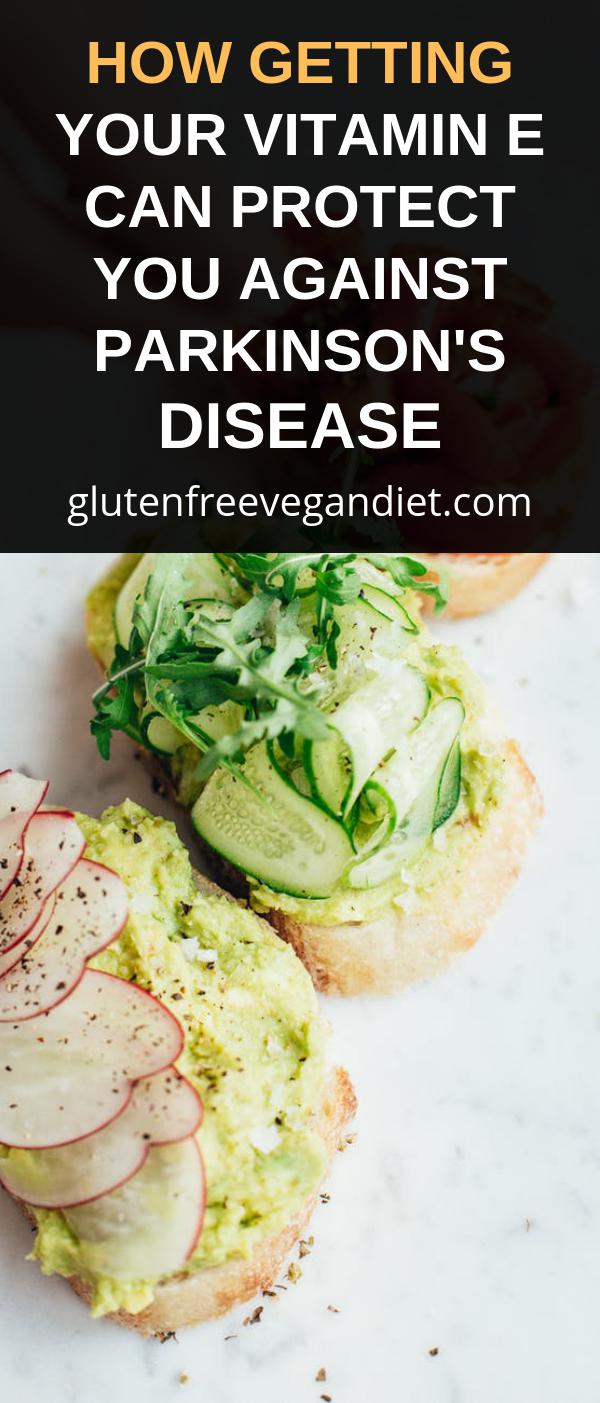Parkinson’s disease is a chronic, progressive neurological disease characterized by resting tremors, increasing muscle rigidity, and eventual paralysis. There is no cure for Parkinson’s disease. Drugs can help relieve the symptoms and might slow the progress of the disease, but cannot cure it.
The cause is unknown, but a number of factors, including age, genetics, and environmental influences are believed to affect risk. Moderate amounts of vitamin E in the diet can protect against Parkinson’s disease, according to a study in the Lancet Neurology (2005;4:362:5).

Highly reactive free radicals appear to play an important role in the nerve damage that occurs in people with Parkinson’s disease. Antioxidants such as vitamins A, C, and E, beta-carotene and other carotenoids, zinc, and plant chemicals known as bioflavonoids are nutrients that prevent free radicals from injuring cells. Several studies have looked at the effects of dietary antioxidants on the risk of Parkinson’s disease.

The current report analyzed the research on the possible link between the risk of Parkinson’s disease and dietary intake of three antioxidants: vitamin C, vitamin E, and beta-carotene. Eight studies were found to meet the criteria of this analysis, and of these, seven looked at the effect of vitamin E on the risk of Parkinson’s disease, seven looked at vitamin C, and four looked at beta-carotene. The studies used questionnaires to approximate the amounts of these antioxidants in the participant’s diets and supplements. For this analysis, intake was categorized as high if it was within the top 20 to 25% of people’s diets and moderate if it was in the middle 50 to 60%. Moderate and high dietary intake of vitamin E was associated with a 19% reduction in the risk of developing Parkinson’s disease, but no protective effects of either vitamin C or beta-carotene were seen. A high intake of vitamin E was slightly more protective than a moderate intake, but this difference was not statistically significant.
The findings of this analysis show that eating a diet rich in vitamin E can reduce the risk of developing Parkinson’s disease. Foods with high amounts of vitamin E include nuts, seeds, olives, olive oil, other vegetable oils, and avocados. Despite their high-fat content, it’s important for people to understand that these foods are an important part of a healthful diet. It is important to note that at least one study suggested that synthetic vitamin E (the most common and least expensive form used in supplements) is unlikely to provide the same benefit as vitamin E in its natural form because of its reduced activity and possible reduced ability to reach the brain tissue.


